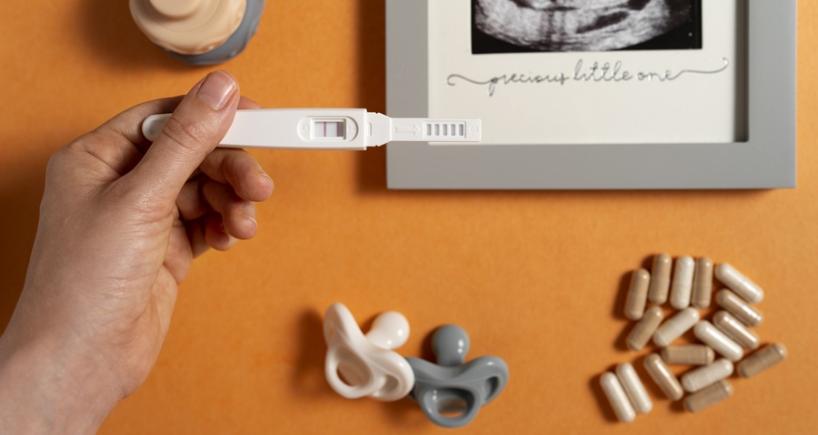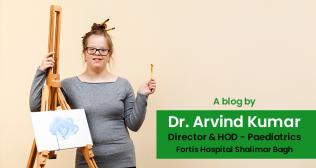
Everything You Need to Know About Fetal Medicine and its Importance
Introduction
Are you expecting a baby? If so, you cannot help but be extremely careful about your, as well as the unborn baby. This is why seeing a doctor frequently would be a very good idea. And in case you are suffering from certain medical conditions, such as diabetes, asthma, heart dysfunctions, and various other complications, then the situation might complicate, making it essential to seek specialized treatment. All this applies to those of you who are older than 35, as women beyond this age are more prone to fetal abnormalities. What is fetal medicine, and what responsibilities does it cover? Find out the answers to these questions from the text below.
Fetal Medicine is also known as Perinatology, a field in healthcare that caters to the needs of unborn babies. During the last years, this medical specialty has been increasingly important due to the dazzling technological advancements and medical collaborations which have fostered, with more accurate diagnosis and precise medicine.
One of the important facts in growing fetus, is that it is fetal magnetic resonance imaging (MRI), and the use of sophisticated imaging techniques, such as fetal magnetic resonance imaging, allow medical experts to get precise information about the fetus such as structural, acquired and genetic anomalies.
Early Detection of Foetal Abnormalities
One of the main objectives of fetal medicine is early detection of prenatal abnormalities. Through ultrasound imaging and genetic testing healthcare providers can identify structural and genetic anomalies at an early stage. This early diagnosis enables timely interventions, which can significantly improve the prognosis for the affected fetus.
Management of High-Risk Pregnancies
Potential complications due to high-risk pregnancies are effectively managed through specialized care. It involves close collaboration between obstetricians and fetal medicine specialists who monitor and treat health conditions like gestational diabetes, preeclampsia as well as multiple births. By working together as a team of professionals from different disciplines, it guarantees every pregnant mom’s wellness as well as that of her child before birth.
Key Techniques and Technologies in Foetal Medicine
Technology has revolutionized fetal medicine, by enabling accurate and precise diagnoses and treatments of a wide range of conditions.
Ultrasound Imaging
Ultrasound imaging is a cornerstone of foetal medicine. It uses high sound waves to create detailed images of the fetus, allowing healthcare providers to monitor growth, detect abnormalities, and assess overall health. Techniques such as 3D and 4D ultrasounds provide even more detailed views, enhancing diagnostic capabilities.
Genetic Testing
Genetic testing involves analyzing the fetus’s DNA to detect genetic disorders and chromosomal abnormalities. Non-invasive prenatal testing (NIPT) and invasive procedures like amniocentesis and chorionic villus sampling (CVS) are commonly used methods. These tests provide critical information that can guide clinical decisions and parental planning.
In addition to diagnostics, fetal medicine is used to address many fetal abnormalities to improve the health of unborn baby. Some of them include fetoscopic procedures, open fetal surgery, and ex utero intrapartum treatment.
Significance of Foetal Medicine
Foetal medicine plays a crucial role in modern obstetrics by providing comprehensive care for both the mother and the fetus. It ensures early detection and management of potential complications, thereby improving pregnancy outcomes and reducing risks for both parties.
The importance of fetal medicine cannot be overstated, as it plays a important role in reducing the risk of stillbirth and improving pregnancy outcomes. By detecting and managing fetal conditions early on, healthcare providers can take steps to mitigate the risks and minimize the labour complications.
Ethical Considerations in Foetal Medicine
Foetal medicine raises several ethical issues, including the balance between maternal and fetal rights, informed consent, and the implications of prenatal diagnosis. Ethical dilemmas often arise when making decisions about interventions and the management of detected abnormalities. It is essential to approach these situations with sensitivity and respect for the values and preferences of the parents.
Future Trends and Innovations in Fetal Medicine
Fetal medicine field advancement has a lot of potential which include improving the diagnosis, raising the success rate in treatment and helping women with pregnancy complications to have better care. It is still growing and so are new technologies like robotics that will enable us to provide better service in order to treat patients. Innovations such as wearable fetal monitors, artificial intelligence (AI) in diagnostics, and advanced fetal surgeries are set to transform prenatal care.
This constant development in medical technology, clinical studies has the potential for even greater improvements in prenatal care, providing hope and better outcomes for future generations.
Popular Searches :
Hospitals: Cancer Hospital in Delhi | Best Heart Hospital in Delhi | Hospital in Amritsar | Hospital in Ludhiana | Hospitals in Mohali | Hospital in Faridabad | Hospitals in Gurgaon | Best Hospital in Jaipur | Hospitals in Greater Noida | Hospitals in Noida | Best Kidney Hospital in Kolkata | Best Hospital in Kolkata | Hospitals in Rajajinagar Bangalore | Hospitals in Richmond Road Bangalore | Hospitals in Nagarbhavi Bangalore | Hospital in Kalyan West | Hospitals in Mulund | Best Hospital in India | | Cardiology Hospital in India | Best Cancer Hospital in India | Best Cardiology Hospital in India | Best Oncology Hospital In India | Best Cancer Hospital in Delhi | Best Liver Transplant Hospital in India
Doctors: Dr. Rana Patir | Dr. Rajesh Benny | Dr. Rahul Bhargava | Dr. Jayant Arora | Dr. Anoop Misra | Dr. Manu Tiwari | Dr. Praveer Agarwal | Dr. Arup Ratan Dutta | Dr. Meenakshi Ahuja | Dr. Anoop Jhurani | Dr. Shivaji Basu | Dr. Subhash Jangid | Dr. Atul Mathur | Dr. Gurinder Bedi | Dr. Monika Wadhawan | Dr. Debasis Datta | Dr. Shrinivas Narayan | Dr. Praveen Gupta | Dr. Nitin Jha | Dr. Raghu Nagaraj | Dr. Ashok Seth | Dr. Sandeep Vaishya | Dr. Atul Mishra | Dr. Z S Meharwal | Dr. Ajay Bhalla | Dr. Atul Kumar Mittal | Dr. Arvind Kumar Khurana | Dr. Narayan Hulse | Dr. Samir Parikh | Dr. Amit Javed | Dr. Narayan Banerjee | Dr. Bimlesh Dhar Pandey | Dr. Arghya Chattopadhyay | Dr. G.R. Vijay Kumar | Dr Ashok Gupta | Dr. Gourdas Choudhuri | Dr. Sushrut Singh | Dr. N.C. Krishnamani | Dr. Atampreet Singh | Dr. Vivek Jawali | Dr. Sanjeev Gulati | Dr. Amite Pankaj Aggarwal | Dr. Ajay Kaul | Dr. Sunita Varma | Dr. Manoj Kumar Goel | Dr. R Muralidharan | Dr. Sushmita Roychowdhury | Dr. T.S. MAHANT | Dr. UDIPTA RAY | Dr. Aparna Jaswal | Dr. Ravul Jindal | Dr. Savyasachi Saxena | Dr. Ajay Kumar Kriplani | Dr. Nitesh Rohatgi | Dr. Anupam Jindal |
Specialties: Heart Lung Transplant | Orthopedic | Cardiology Interventional | Obstetrics & Gynaecology | Onco Radiation | Neurosurgery | Interventional Cardiology | Gastroenterologist in Jaipur | Neuro Physician | Gynecologist in Kolkata | Best Neurologist in India | Liver Transfer |












